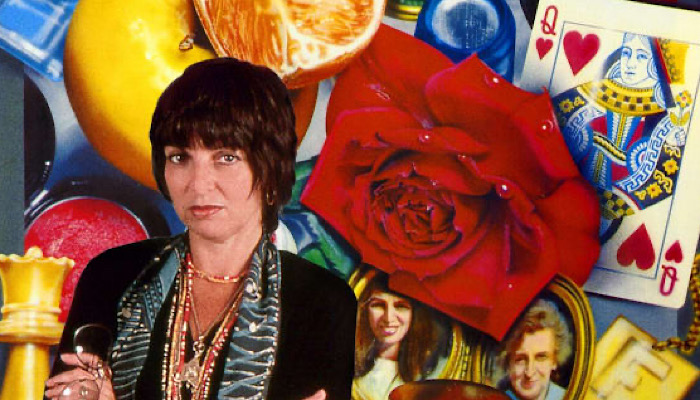
“I believe art cuts across time. Art lives forever”, says abstract and pioneering photorealist artist Audrey Flack, in an interview during her one woman show at renowned New York gallery Hollis Taggart. Flacks work expresses some of the deepest struggles and commonalities in humanity, like mortality and a yearning for belonging and love. Flack’s life and career in art is the subject of co-directors Deborah Shaffer and Rachel Reichman’s film Queen of Hearts: Audrey Flack, and it is a fascinating examination of a singular artist, a woman who thrived in the nearly completely male-dominated art world of the 50s, changing the demographic and cultural landscape of 20th century art.
Anyone who is interested in hearing and seeing first hand the experience of a woman breaking the artistic glass ceiling will find the film compelling, not least because her story comes directly from the source.
Through interviews with Flack herself, as well as her closest friends and colleagues, and featuring pictures and archival footage representing her life, the film traces Flack’s background, career, and her personal insights. First there is a focus on her early experiences at New York’s High School of Music and Art and Yale, where she encountered sexual harassment from a successful artist whose name many would recognize. To see how she forges forward, regardless of how she is perceived by the critics and artists around her, should be inspirational to individualistic artists everywhere. Flack is clear about what drove her and the artists around her, including Jackson Pollock, Richard Estes, and Chuck Close, was artistic truth, not money. She was and still is seeking to speak about universal experiences of being human, always doing it from a feminist perspective. She was an art activist that paved the way for women like the activist artist collective, Guerrilla Girls.
For the entire review, go to AWFJ.org HERE.



